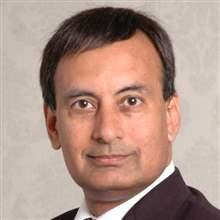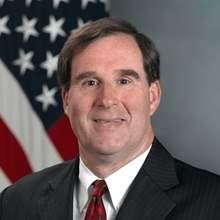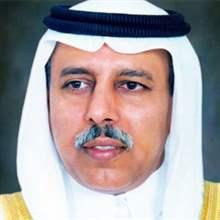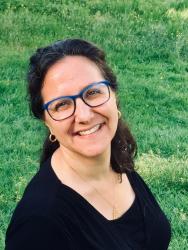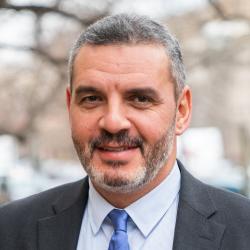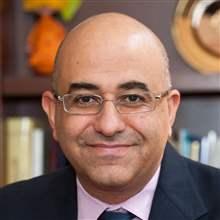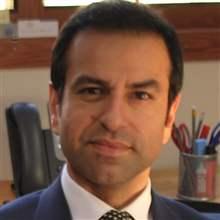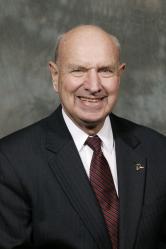2026
Content from the Brookings Doha Center is now archived. In September 2021, after 14 years of impactful partnership, Brookings and the Brookings Doha Center announced that they were ending their affiliation. The Brookings Doha Center is now the Middle East Council on Global Affairs, a separate public policy institution based in Qatar.
Brookings Project on U.S. Relations with the Islamic World, in partnership with the State of Qatar, convened its annual U.S.-Islamic World Forum from June 9-11, 2013 in Doha, Qatar. The Forum was entitled “A Decade of Dialogue,” heralding the ten-year anniversary of the Forum. The Forum has become the premier platform for engagement by American leaders from government, business, and civil society with their counterparts from Muslim-majority countries around the world.
This year’s sessions highlighted the changing landscape in Pakistan and Afghanistan and its effect on internal and regional security. The event featured discussions on the challenges of democracy and development that have loomed in the aftermath of the Arab Spring. The Forum also featured a discussion on the conflict in Syria, noting the spiraling effects of the conflict on the Middle East region and the roles played by the United States and other outside actors.
As in previous years, the Forum convened working groups focused on specific thematic issues. The 2013 working groups focus on advancing women’s political participation within an Islamic framework, supporting economic assistance and recovery in Egypt and Tunisia; examining the role of faith based leaders in mediating conflict and fostering diplomacy; and defining and understanding freedom of speech among global Muslim communities.
Preview of the 2013 U.S.-Islamic World Forum
Welcoming Remarks
Transitions in Afghanistan and Pakistan
Keynote Speeches
"Politics Demonizes, Culture Humanizes": Arts, Conflict, and Security
Democracy and Development: How Do They Fit Together?
Arab Opinion, Identity, and the Reshaping of the Middle East
Ripple Effects: The Syria Crisis and its Regional Impact
Working Groups Presentation and Closing Remarks
The 2013 U.S.-Islamic World Forum
Agenda
-
June 9
-
Sunday, June 9 - 10:30AM-11:00AM Doha (3:30AM-4:00AM ET)
 Martin S. Indyk Former Brookings Expert, Distinguished Fellow - The Council on Foreign Relations @Martin_Indyk
Martin S. Indyk Former Brookings Expert, Distinguished Fellow - The Council on Foreign Relations @Martin_Indyk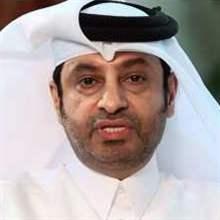 H.E. Sheikh Ahmed bin Mohammed bin Jabr Al-Thani Minister's Assistant for International Cooperation Affairs and the Chairman of Permanent Committee for Organizing Conferences, Qatar
H.E. Sheikh Ahmed bin Mohammed bin Jabr Al-Thani Minister's Assistant for International Cooperation Affairs and the Chairman of Permanent Committee for Organizing Conferences, Qatar -
Sunday, June 9 - 11:00 AM-12:45 PM Doha (4:00 AM-5:45 AM ET)
In a panel discussion on the political transitions in Afghanistan and Pakistan and the future of U.S. policy in these countries, David Sedney praised Afghanistan’s commitment to building security and military organizations. Sedney pointed out, however, that true success will be measured by next year’s elections – namely, in the government’s ability to launch a successful political process akin to that of Pakistan.
Amrullah Saleh, on the other hand, warned that while America’s war on terror may be winding down, the war between democratic forces and extremist groups in Afghanistan has not come to an end due to the widespread presence of terrorist sanctuaries, ongoing hostilities between Afghanistan and Pakistan, and the rising momentum in the Taliban’s insurgency. He, along with Husain Haqqani, agreed that the U.S. and the international community should avoid ending their mission prematurely and engaging with these governments. Haqqani did not envision any improvements in Pakistan’s approach to Afghanistan, despite its recent change in government.
Finally, Michael O’Hanlon defended U.S. policies toward Afghanistan, arguing that Obama’s policies are both resolute and “stronger than his rhetoric.” O’Hanlon said the Obama administration should take credit for the policies it believes in.
Moderator
Panelist
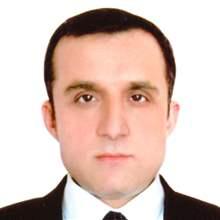 Amrullah Saleh Former Director, National Directorate of Security, Afghanistan
Amrullah Saleh Former Director, National Directorate of Security, Afghanistan Michael E. O’Hanlon Director of Research - Foreign Policy, Director - Strobe Talbott Center for Security, Strategy, and Technology, Co-Director - Africa Security Initiative, Senior Fellow - Foreign Policy, Strobe Talbott Center for Security, Strategy, and Technology, Philip H. Knight Chair in Defense and Strategy @MichaelEOHanlon
Michael E. O’Hanlon Director of Research - Foreign Policy, Director - Strobe Talbott Center for Security, Strategy, and Technology, Co-Director - Africa Security Initiative, Senior Fellow - Foreign Policy, Strobe Talbott Center for Security, Strategy, and Technology, Philip H. Knight Chair in Defense and Strategy @MichaelEOHanlon -
Sunday, June 9 - 7:00 PM-9:00 PM Doha (12:00 PM-2:00 PM ET)
 Martin S. Indyk Former Brookings Expert, Distinguished Fellow - The Council on Foreign Relations @Martin_Indyk
Martin S. Indyk Former Brookings Expert, Distinguished Fellow - The Council on Foreign Relations @Martin_Indyk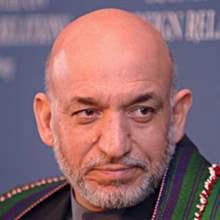 H.E. Hamid Karzai President, Afghanistan
H.E. Hamid Karzai President, Afghanistan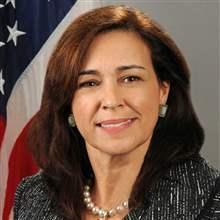 Tara Sonenshine Coordinator for Global Partnerships, Planet Forward - The George Washington University, Fmr. Under Secretary of State for Public Diplomacy and Public Affairs - U.S. Department of State @TSonenshine
Tara Sonenshine Coordinator for Global Partnerships, Planet Forward - The George Washington University, Fmr. Under Secretary of State for Public Diplomacy and Public Affairs - U.S. Department of State @TSonenshine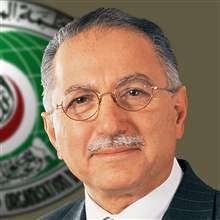 H.E. Ekmeleddin Ihsanoglu Secretary General, Organization of Islamic Cooperation
H.E. Ekmeleddin Ihsanoglu Secretary General, Organization of Islamic Cooperation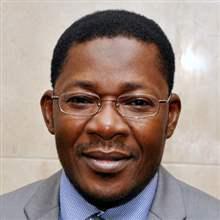 H.E. Nassirou Arifari Bako Minister of Foreign Affairs, Benin
H.E. Nassirou Arifari Bako Minister of Foreign Affairs, Benin -
Monday, June 10 - 8:00 AM-9:00 AM Doha (1:00 AM-2:00 AM ET)
Cynthia Schneider welcomed participants and panelists, who discussed the importance of art and cultural expression in matters of security and the stablization of conflict. The first panelist was Manny Ansar, a musician from Mali and an organizer of the Festival of Peace, an event which brings together artists from Mali to celebrate the return of peace after the war. This festival became especially important because it was attacked by extremists who want to impose extreme authoritarian rule by taking away their cultural roots and the memory of their history. The second panelist was Sultana Siddiqui, the only female CEO of a media empire in Pakistan. Prior to Siddiqui’s channel, there only existed government owned channels. Her programs and productions emphasize themes of women’s empowerment, addressing problems and issues through dramas and serials. Lastly, Nikahang Kowsar discussed his experience as a cartoonist critical of the Iranian regime, and the prison sentence he has served and the challenges he has encountered in order to express his views on the political atmosphere in his country. The panel ended with questions from the audience.
Moderator
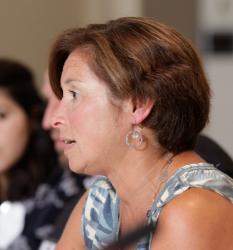 Cynthia P. Schneider Former Brookings Expert, Distinguished Professor in the Practice of Diplomacy - Georgetown University @schneidercp
Cynthia P. Schneider Former Brookings Expert, Distinguished Professor in the Practice of Diplomacy - Georgetown University @schneidercpPanelist
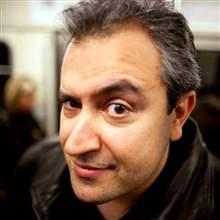 Nikahang Kowsar Cartoonist, IranSSSohaira Siddiqui Assistant Professor, Georgetown University School of Foreign Service-Qatar
Nikahang Kowsar Cartoonist, IranSSSohaira Siddiqui Assistant Professor, Georgetown University School of Foreign Service-Qatar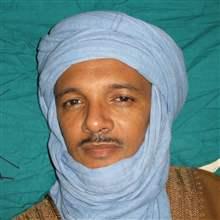 Manny Aly Ansar Musician, Mali
Manny Aly Ansar Musician, Mali -
Monday, June 10 - 11:00 AM-12:45 PM Doha (4:00 AM-5:45 AM ET)
In a session on the intersection of democracy and development, Rabea Ataya, founder of Bayt.com, talked about the need for “quick wins” to show the people, especially the young people, of transitioning countries that economic opportunities are improving. He focused on transparent governance, rule of law, and regulatory reform. Focusing specifically on his own country, H.E. Amr Darrag, Egyptian Minister of Planning and International Cooperation, outlined the government’s multi-stage program for restoring economic growth. Nazanin Ash, U.S. deputy assistant secretary of state for Near Eastern affairs, discussed many of the challenges facing donor countries as well as specific measures the United States is taking to support fiscal stability and economic growth in the transitioning Arab states. Ash noted that international support can only go so far if local political actors do not also built acceptable structures to facilitate political and economic inclusivity. During questions and answers, Darrag, Ash, and moderator Tamara Wittes, director of the Saban Center at Brookings, engaged each other on the recent verdict in the Egyptian trial of U.S. and German NGO workers as well as a current NGO law draft, recently submitted to the Egyptian Shura Council?
Panelist
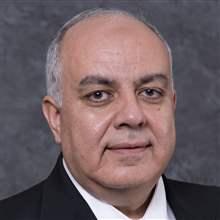 H.E. Amr Darrag Minister for International Cooperation and Development, Egypt
H.E. Amr Darrag Minister for International Cooperation and Development, Egypt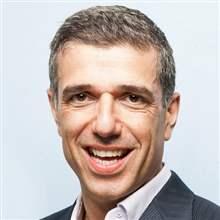 Rabea Ataya Chief Executive Officer, Bayt.com, UAE
Rabea Ataya Chief Executive Officer, Bayt.com, UAE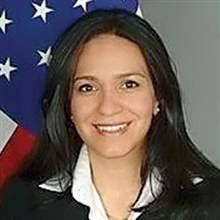 H.E. Nazanin Ash Deputy Assistant Secretary, Bureau of Near Eastern Affairs, U.S. Department of State
H.E. Nazanin Ash Deputy Assistant Secretary, Bureau of Near Eastern Affairs, U.S. Department of State -
Tuesday, June 11- 8:00 AM-9:15 AM Doha (1:00 AM-2:15 AM ET)
Shibley Telhami began the discussion by noting that public opinion has always had an impact on the policies of Arab governments, even if its role was under-researched in the era preceding the Arab Spring. The fact that Arabs and Muslims self-identify in ways that transcend the nation state, he emphasized, means that in this region foreign policy is always tightly linked to domestic policy. Samer Shehata agreed, stressing that this dynamic would more directly affect – if not determine – policies in Arab Spring states, where leaders are becoming more accountable. Dalia Mogahed said that one important shift in Arab opinion was a move away from the belief that America was waging a “war on Islam.” Under the Obama administration, she said, Arab criticisms of the U.S. had focused on distinct policies and weren’t framed as the result of an essential and inevitable conflict. Rashad Hussein said that the deep legacy of distrust resulting from previous U.S. policies continued to shape Arab opinions on America, even where shifts in policy have already taken place – for instance in Washington’s response to the Arab Spring. All panelists emphasized with force that this distrust would remain as long as the U.S. did not do more to address the plight of the Palestinians. In an Arab world seeking to reclaim its dignity, Telhami said, it is “sad tragedy” that American policy discussions are all to often dismissive of the issue that remains in many ways the most damaging and most important to Arabs and Muslims themselves.
Panelist
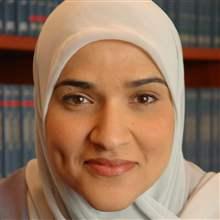 Dalia Mogahed President/CEO, Mogahed Consulting; Former Executive Director, Gallup Center for Muslim Studies, United States
Dalia Mogahed President/CEO, Mogahed Consulting; Former Executive Director, Gallup Center for Muslim Studies, United States Shibley Telhami Nonresident Senior Fellow - Foreign Policy, Center for Middle East Policy @ShibleyTelhami
Shibley Telhami Nonresident Senior Fellow - Foreign Policy, Center for Middle East Policy @ShibleyTelhami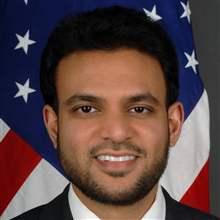 Rashad Hussain U.S. Special Envoy to the Organization of Islamic Cooperation
Rashad Hussain U.S. Special Envoy to the Organization of Islamic Cooperation -
Tuesday, June 11 - 11:00 AM-12:45 PM Doha (4:00 AM-5:45 AM ET)
Salman Shaikh opened the discussion. Hossam Hafez discussed challenges the opposition has faced. He advocated for civilian protection and to consider a no-fly zone. Jon Wilks focused on how to create balance on the ground to force negotiation. He looked at interests and concerns shared by Russia, Iran, the U.S. and UK. Sa’eb Erekat discussed how Syrian Palestinians are unwelcome in neighboring countries and the excessive discussion on “the day after” but with no clear idea on when it will occur. He asked all parties to consider what must be done to help the right people win. Erekat recounted the peace process, and Secretary Kerry’s efforts to bring peace to the region. Thomas Pickering emphasized the need for U.S.-Russian cooperation to end the conflict. He called on reinforcement for the opposition to pressure Assad. He added that Syrians must decide whether Assad will stay or go. Pickering suggested an option for a UN conducted election in Syria next year. Vitaly Naumkin affirmed Russia’s desire to pursue a political solution, because it’s impossible to win militarily. He emphasized that Russia wasn’t sending weapons to be used against the opposition. He urged the U.S. to include Iran in the upcoming Geneva conference, to prevent Iran from becoming a spoiler.
Panelist
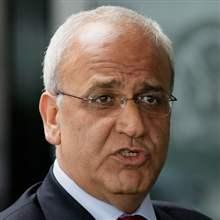 Saeb Erekat Former Chief of PLO Monitoring and Steering Committee, Palestine
Saeb Erekat Former Chief of PLO Monitoring and Steering Committee, Palestine Jon Wilks U.K. Special Representative to the Syrian Opposition
Jon Wilks U.K. Special Representative to the Syrian Opposition Hossam Hafez Former Syrian Diplomat
Hossam Hafez Former Syrian Diplomat Vitaly Naumkin President, International Center for Strategic and Political Studies, Russia
Vitaly Naumkin President, International Center for Strategic and Political Studies, Russia -
Tuesday, June 11 - 12:45 PM-1:15 PM Doha (5:45 AM-6:15 AM ET)
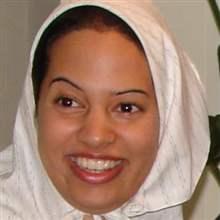 Durriya Badani Deputy Director, Project on U.S. Relations with the Islamic World at Brookings - Foreign Policy
Durriya Badani Deputy Director, Project on U.S. Relations with the Islamic World at Brookings - Foreign Policy -
Working Group Session - Rethinking the ‘Red Line’: The Intersection of Free Speech, Religious Freedom, and Social Change
The issue of free speech, particularly freedom to speak about, criticize or even reject religion, continues to be a contentious issue among Muslims, and between Muslims and non-Muslim compatriots, in the United States and in Muslim-majority countries. This working group will explore the reasons why free speech remains a controversial topic with changing contours and disputed boundaries, and how these disputes might be addressed and resolved. Using the Organization of Islamic Cooperation’s Defamation of Religions Resolution as a case study, the working group will look at different definitions of free speech, alternative standards governing limits on free speech, and how the gaps among competing standards might be bridged. The goal of the working group is to produce a policy memo and action initiative that will reflect culturally specific concerns and reconcile them.
Conveners: Asma Uddin, The Becket Fund; Haris Tarin, Muslim Public Affairs Council
Read the paper » -
Working Group Session - On The Brink: Preventing Economic Collapse and Promoting Inclusive Growth in Egypt and Tunisia
Economic frustration and anger helped fuel the Arab revolutions – but after two years, Egypt and Tunisia are facing an increase in the fiscal and balance of payments deficits, a decline in economic growth, and a rise in unemployment. It seems clear, therefore, that economic recovery should be a top priority for the new leadership in Tunisia and Egypt, as well as for the international community, which has a stake in a successful transition to democracy. The Arab revolutions provide an opportunity for the international community, particularly the United States, to revise its policies in support of Arab countries with a greater focus on supporting democracy, human rights, and inclusive economic growth. This roundtable will bring together economists and political activists from Egypt and Tunisia, as well as experts from bilateral and multilateral donor agencies to focus on three broad questions: What should governments and donors do to achieve macro-financial stabilization and avoid economic collapse? What measures can be taken to increase economic opportunities for youth and other disadvantaged groups, and to encourage job creation? Can we identify some “quick wins” in the area of good governance that could support inclusive and sustainable growth, particularly corruption control?
Conveners: Hafez Ghanem, Brookings Institution; Shadi Hamid and Salman Shaikh, Brookings Doha Center
Read the paper » -
Working Group Session - Fostering Synergies in Advancing Women’s Rights in Post-Conflict Islamic States: A Focus on Afghanistan, Egypt, and Libya
Political transitions in states emerging from conflict pose challenges and offer opportunities. In the countries we will consider in this working group, there is a renewed emphasis on democracy (with its principle that all citizens are equal), but also on defining a role for Islam within the state. Efforts to incorporate Islamic religious concepts into the formal constitutions of Afghanistan, Egypt, and Libya have left important questions unresolved, especially as regards the rights of women. The challenge of fostering common approaches among Muslim women activists, members of the ulama (religious leaders) as well as legal advocates is daunting, yet finding common ground among such diverse stakeholders on women’s rights in Muslim-majority states is critical to advancing democracy and human development. With this challenge in mind, the focus of this working group is to find consensus on ways to champion and sustain progress on women’s rights amid renewed Islamic constitutionalism. By enlisting activists and religious leaders to draw on lessons learned and reason together, a more tailored approach may emerge based upon each nation’s respective cultural, institutional and human development.
Conveners: Manal Omar and Kathleen Kuehnast, United States Institute of Peace
Read the paper » -
Working Group Session - Diplomacy and Religion: Seeking Common Interests and Engagement in a Dynamic World
This Working Group brings together diplomats, clerics, and scholars to explore how religious communities and leaders on the one hand, and diplomats on the other, can find common interests and ways of common engagement in tackling international problems. It seeks first to delineate the scope both religiously and diplomatically for cooperation on major foreign policy matters affecting the U.S. and Islamic world, and then to take up some specific issues for discussion: U.S.-Iran Relations on Nuclear Issues; Middle East Peace Negotiations; and Religion and U.S. Diplomacy in the Arab Transition States. While religious and diplomatic frameworks differ significantly, each recognizes the other’s relevance to conflict resolution and human progress. How can these two approaches work together to better appreciate and incorporate the other perspective, to build common understandings of key concepts and of specific issues, and to engage in mutual endeavor to resolve pressing international problems? The group will explore options for such shared understanding and collaboration.
Conveners: The Right Reverend Bishop John Chane and Allen Keiswetter
Read the paper »
-

